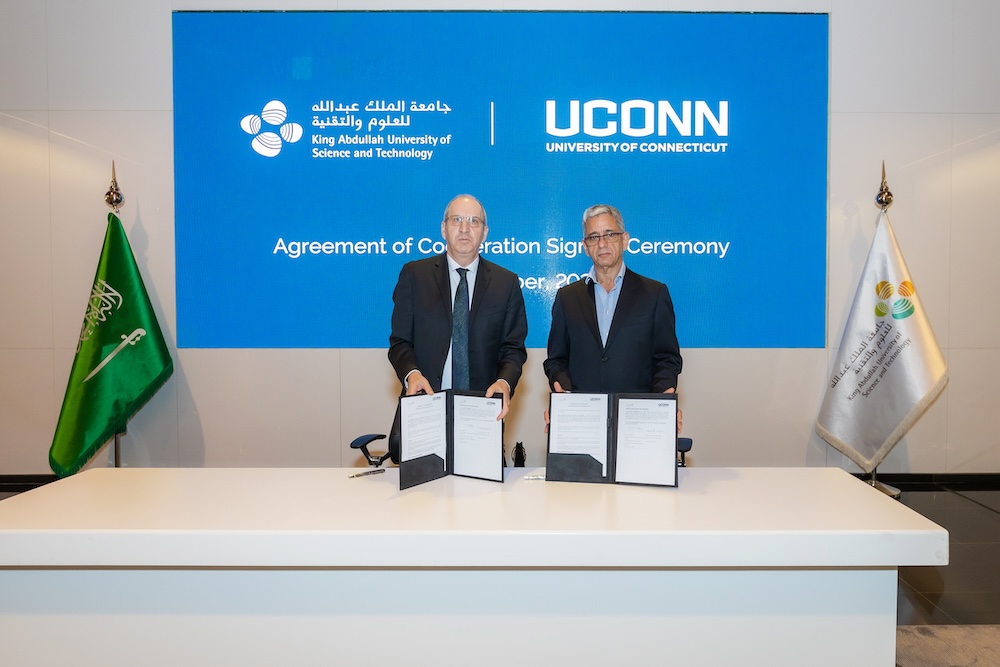KAUST signs agreement with University of Connecticut for innovation and commercialization

Daniel Weiner, Vice President for Global Affairs, University of Connecticut and Omar Knio, Interim Vice President, Education and Academic Affairs, KAUST signed the agreement
King Abdullah University of Science and Technology (KAUST) and the University of Connecticut (UConn) have announced a new agreement of collaboration in which the two institutes will work together in scientific areas that have regional and global impact, with a focus on addressing pressing challenges in AI, sustainability, clean energy and health technologies.
The aim of both institutions is to develop an innovative model for global collaboration: one that bridges research and real-world applications, driving technology commercialization and societal benefits.
Along with collaborative research, the agreement calls for the two universities to develop joint programs that facilitate the exchange of staff and students and accelerate the commercialization of innovations in multiple technology sectors.
Daniel Weiner, UConn’s Vice President for Global Affairs, said that the agreement “demonstrates the complementary strengths and interests of UConn and KAUST. Both institutions strive to maintain a robust research enterprise that produces transformative solutions for societal problems in fields such as AI and clean energy. UConn is proud to collaborate with KAUST to build an innovative and effective partnership.”
Due to its geographical location, UConn is positioned excellently to access the technological corridor between Boston and New York City. It demonstrates research strengths in AI, Advanced Manufacturing, Materials Science, and Clean Energy, and its emphasis on entrepreneurship, innovation, and technology transfer enables research advances to quickly and effectively translate into societal impact.
Ian Campbell, Vice President of the KAUST National Transformation Institute (NTI), said of the partnership: “This agreement reinforces KAUST’s position as a global connector to key innovation zones globally and strengthening our strategic alignment with Saudi Arabia’s Vision 2030 in key innovation priorities in technology.”
Through the inauguration of its National Transformational Institute (NTI) and its four Centers of Excellence, KAUST has intensified its commitment to innovation in AI, healthcare, energy and sustainability as well as their commercialization to help Saudi Arabia realize its ambitious economic diversification goals.
The agreement with UConn continues KAUST's strategic commitment to expanding international research and educational partnerships, particularly with premier U.S. universities.

